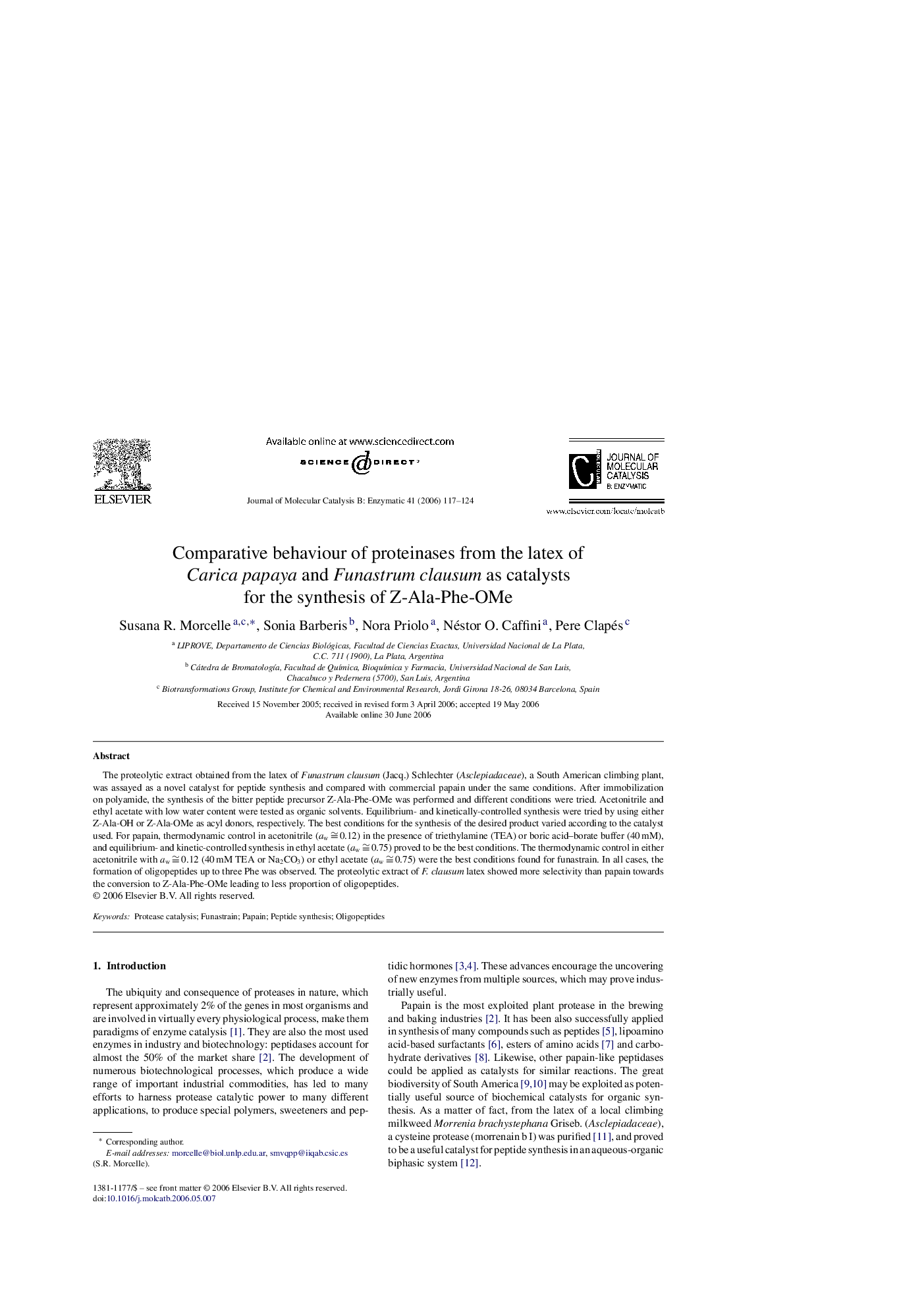| Article ID | Journal | Published Year | Pages | File Type |
|---|---|---|---|---|
| 71285 | Journal of Molecular Catalysis B: Enzymatic | 2006 | 8 Pages |
The proteolytic extract obtained from the latex of Funastrum clausum (Jacq.) Schlechter (Asclepiadaceae), a South American climbing plant, was assayed as a novel catalyst for peptide synthesis and compared with commercial papain under the same conditions. After immobilization on polyamide, the synthesis of the bitter peptide precursor Z-Ala-Phe-OMe was performed and different conditions were tried. Acetonitrile and ethyl acetate with low water content were tested as organic solvents. Equilibrium- and kinetically-controlled synthesis were tried by using either Z-Ala-OH or Z-Ala-OMe as acyl donors, respectively. The best conditions for the synthesis of the desired product varied according to the catalyst used. For papain, thermodynamic control in acetonitrile (aw ≅ 0.12) in the presence of triethylamine (TEA) or boric acid–borate buffer (40 mM), and equilibrium- and kinetic-controlled synthesis in ethyl acetate (aw ≅ 0.75) proved to be the best conditions. The thermodynamic control in either acetonitrile with aw ≅ 0.12 (40 mM TEA or Na2CO3) or ethyl acetate (aw ≅ 0.75) were the best conditions found for funastrain. In all cases, the formation of oligopeptides up to three Phe was observed. The proteolytic extract of F. clausum latex showed more selectivity than papain towards the conversion to Z-Ala-Phe-OMe leading to less proportion of oligopeptides.
